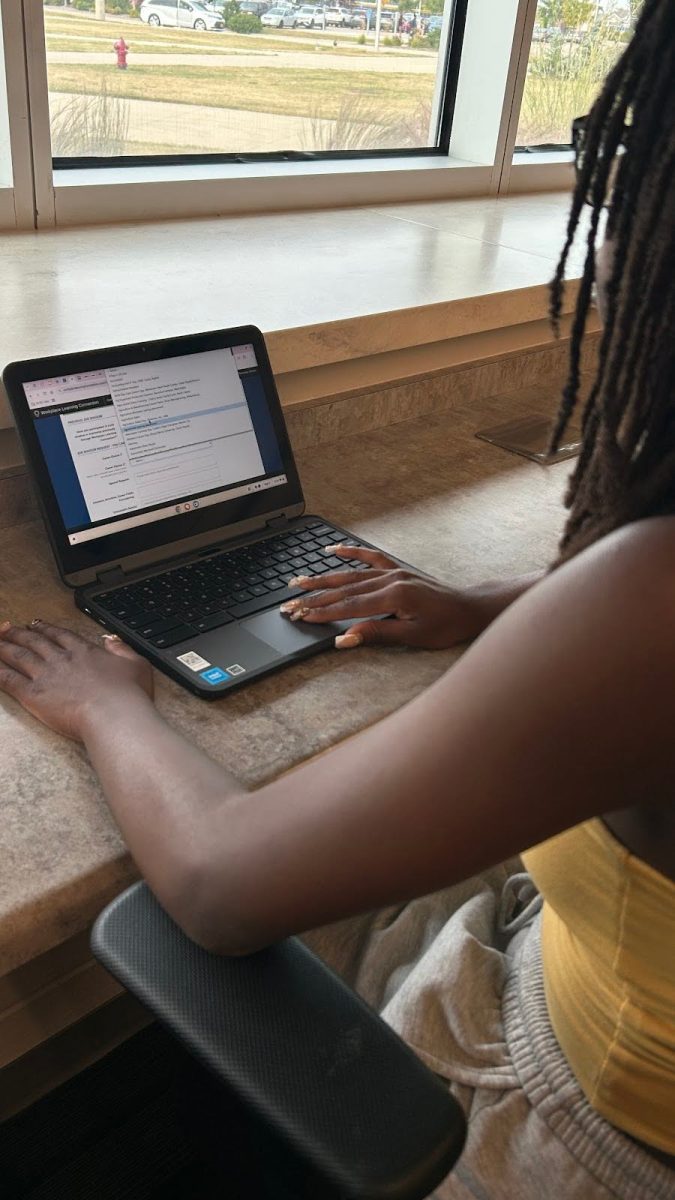
Many teens may feel disconnected from finances in their day-to-day lives. The truth is that the habits they form now can shape their financial future. Teenagers are faced with opportunities to manage their own money, whether through part-time jobs, allowances, or simply managing what they receive as gifts. These early experiences can serve as invaluable lessons or set them up for future struggles.
Zachary Hammes (he/him), a business teacher at Liberty shares his thoughts on teens and money management. As an instructor of Personal Finance and Introduction to Business, Hammes has a unique opportunity to gain a deeper understanding of his students’ financial perspectives and habits.
“I think that the biggest challenge that teens face is that finances are abstract to them, and which, you know, which is saying that it’s something that they don’t really deal with very often. And so when you don’t deal with finances very often because you have the help of your guardians and you’re a teenager, then you know, you’re kind of naive to what really happens in the world of finance,” Hammes said.
Hammes acknowledges that teens aren’t thoroughly informed about how to manage their money.
“Some students’ guardians give and give and give, and that’s great. It’s great that they’re able to do that, but those students who have to kind of take on more of the financial burden of being a teenager and helping out at home, I think they learn so much more financially when they have to do that,” said Hammes.
Hammes believes that although it’s great that parents are able to give to their children, they need to be exposed to the realities of spending money and managing their own finances.
“[Money management] is probably the most important thing that students should learn, because everybody is going to have to deal with personal finance,” Hammes said.
According to Lexington Law, around 27.7 million teenagers living in the United States spend an estimated $63 billion each year. Despite their significant financial influence, many of these young consumers are barely scratching the surface of what it means to manage money responsibly.
“Yeah, it [Getting my first job] kind of showed that money’s like kind of worth a lot, because you don’t necessarily make a lot of money at first,” said Peyton Liu (she/her), 12.
With high school being a pivotal time for personal growth, it’s the perfect moment for teens to learn how to control their finances. Not only to survive the next shopping spree, but to build a foundation for a financially independent future.
Ruby Miller (she/her), 9, shared her experiences of feeling the pull of social spending.
“Whenever I go to the mall with people, they’re like, we should go get food. And I just do it. In my mind, it’s not that much money. [But] it adds up eventually. But it’s usually worth it just for an experience.”
Miller’s experience is common, as many teenagers find themselves caught in a balance between wanting to enjoy their social lives and understanding the true cost of their spending habits.
Developing financial independence isn’t simply about budgeting, it’s about learning when to say no, prioritizing savings and gaining the confidence to make thoughtful choices about money.









